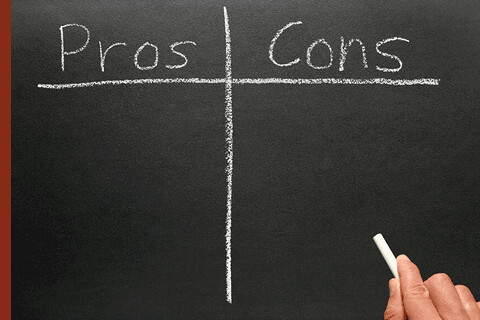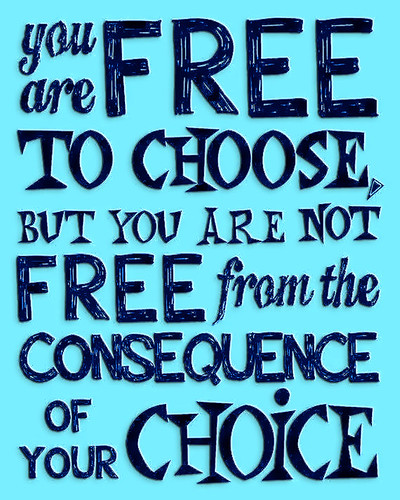The Great EdTech Debate lives on, this week under the controversy of Openness and sharing in schools is unfair to kids. After a great debate in which Kelsie, Danielle, and Shannon argued for the agree stance and Lisa, Haiming, and Stephanie argued the disagree stance, the latter took the win with an 83.3% to 16.7% victory. Although by these results you would think it was a one-sided debate, that was definitely not the case. Both sides argued their positions well, and gave much upon which to reflect this week as I was perusing through the suggested readings from both teams.

Photo Credit: All Reverse Mortgage via Compfight cc
One of the main reasons openness and sharing in schools in unfair to kids is the issue of privacy. Having so much information about oneself online – particularly kids – risks their exposure to a world of danger. Online activity leaves a footprint; good or bad, whatever we put online can always be traced using tools like the Wayback Machine. These activities can have an impact on the digital footprint we are leaving online, and can impact the future. Juan Enriquez compare this to an electronic tattoo; your online life is as permanent as a tattoo, as it will live for years, perhaps even longer than yourself. All the social media and technological sites, including Facebook, Twitter, Google, and LinkedIn tell our stories through posts, pictures, likes, searches, friendships, and retweets. This is perhaps why one fifth of employers will google potential employees before hiring them; a candidate’s online representation of himself or herself can determine if he or she will get the job or not.
Then again, is this not why we need to teach digital citizenship in schools? Is this not why we should be using social media in education, to teach proper usage online and modelling the proper behaviour? A good digital footprint is essential to the future of our students; that, I think, we can all agree. Therefore, as the disagree team argued convincingly, it is important to learn how to be a good digital citizen from a young age, to prepare students for the world in which we are living. Yes, perhaps there will be over-sharing or a misuse of social media and open sharing sites. That has to become a learning opportunity for our students, and not a loss of a job or ruined life for adults. The fact is, we are living in a world of sharing and technology. We need to face this world with the proper skill-set in order to be prepared and well-adjusted for the future. The digital literacy and citizenship skills that are so essential for future development and growth are not the ones being focused on in school; that is what needs to change.

Photo Credit: danielfoster437 via Compfight cc
Not only is openness and sharing essential for the development of a 21st century digital citizen, but it helps students share their work with more than simply their teachers. This gives them the opportunity to share their voice and opinion with their communities and to open up their work for more feedback.
So what does this mean for us? Just like Amy, my views have also changed pretty dramatically since first taking a course with Alec and Katia. As I have mentioned in a previous post, my digital footprint is (or at least was) lacking. In fact, before I created a Twitter page, About.Me page, and a LinkedIn account for EC&I 831 in January, I essentially didn’t exist online except for my affiliation with Wilfrid Walker Elementary School. I was one of those teachers who had no online presence, and therefore couldn’t model appropriate online behaviours for my students; and you know what? I was actually proud of that… YES! I know. I was proud for having nothing online, because then nobody could trace me or find me online. How problematic for a teacher in the 21st century. I am ashamed.
One of the best ways to get students to build strong online and safety skills and to establish an appropriate and positive digital footprint is to model this responsible and professional use of social media – Peel District School Board
Since taking EC&I 831, I understand how wrong I was and how I should change my own mindset about social media. I have begun to use Twitter and Snapchat more regularly – although nowhere near as proficient as a teenager on Snapchat – and, evidently, blogging on a regular basis. I have tried to take care of my digital footprint as a teacher should, but there is still more work to be done. I started blogging with my students, which reaps its own multitude of benefits for the classroom. They are more motivated to write things that matter, and to ensure that it is well-written, creative, and interesting for the audience. Openness and sharing, when used appropriately in the classroom, is ultimately fair for kids as it prepares them for the inevitable future. We can’t devalue the importance of this for the future, or for our kids and students.

Photo Credit: University Library of Kyiv-Mohyla Academy via Compfight cc
Now, all of that being said, there is a whole other side to the teacher responsibility factor of having an online presence that I do find intimidating. I have always known – even before I started my undergraduate degree in Education – that teaching is a 24 hour job. I may leave school grounds by 5:00 pm, but when students and parents see me running my errands after hours or going out with friends, I need to still be a proper representation of my school and my school board. The Supreme Court of Canada even stated this regarding off-duty conduct. Social media has taken this even one step further. Professionalism is key and essential in all aspects of one’s life, including online behaviour. This, although intimidating, is not something with which I have a problem.
However, after reading the Peel District School Board Social Media Guidelines, I did begin to worry about students identifying themselves in crisis online. Where and when is it appropriate for teachers to stand-in and help out the kids in need? If safety is the overall concern, and a student is noting himself or herself in crisis, what is the appropriate response for a teacher when all of this is done online? I think all teachers have dealt with situations in the past where a student has been a crisis and we have dealt with it in person. I have even found it difficult in the past to deal with these in person situations appropriately; I have often had to ask for help in regards to proper procedures for these circumstances. Adding the online dimension adds another layer to an already difficult situation, particularly for the student involved. Where does our responsibility as a teacher begin, and end? Does it ever end?
Where should we go from here? I am someone who appreciates when policies and procedures are explicit. I think it is important for schools to develop the tools, training, and policies for social media and online situations as the one mentioned earlier. If digital citizenship and literacy skills are going to be mandatory for schools – as I think they should for 21st century education – so should these types of policies and procedures, to protect the safety and privacy of all those involved.
Where do you think our responsibility as a teacher begins and ends? Do we have policies and procedures outlining this already, and I am simply unaware of them? Let me know your thoughts and ideas in the comments section below!


Pingback: Footprints in the Concrete | Dean Benko
Great points raised in your blog with week, Elizabeth! I agree with your final point that there are some blurred lines between responsibilities of teachers/parents/students when it comes to online sharing and privacy. I’m not sure there is a clear cut answer to this, but I like that you leave that as an open ended question. Left me, as a reader, with a lot to ponder. Good job!
LikeLike
Great blog Elizabeth and it’s nice to be back in class with you! You bring up a great point about needing more information/discussion on the roles responsibilities of teachers related to students’ online activity. I have not come across any resources or guidelines for Nunavut relating to this topic. I imagine that Saskatchewan is a little ahead of us! This week’s debate really did stress the importance of establishing and understanding teachers’ responsibilities.
LikeLike